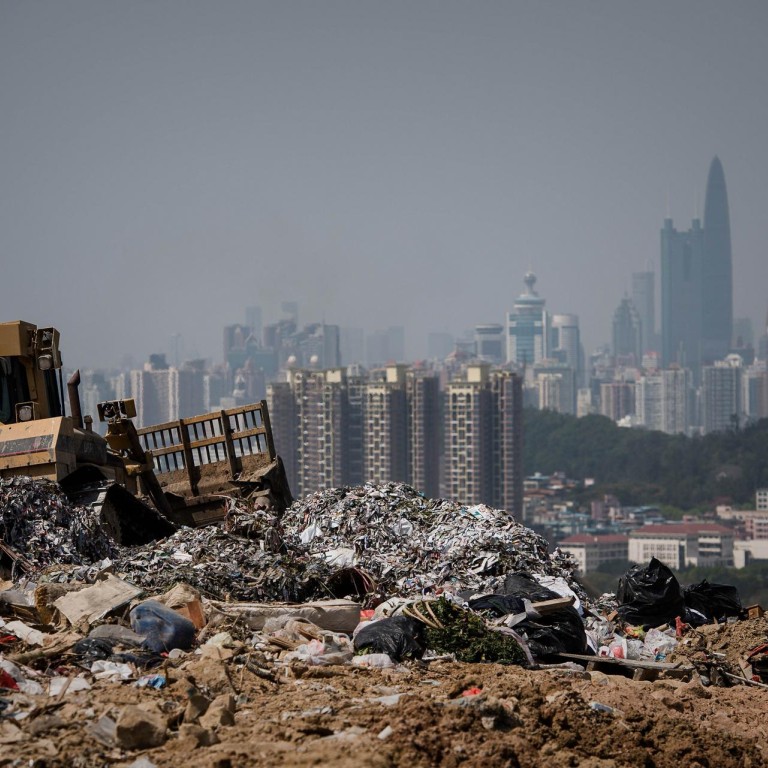
Shek Kwu Chau incinerator smells even before it starts
The controversial Shek Kwu Chau incinerator is due to be considered by the Legislative Council's Finance Committee today, and it may be thwarted by filibustering.
The controversial Shek Kwu Chau incinerator is due to be considered by the Legislative Council's Finance Committee today, and it may be thwarted by filibustering.
We have argued at length over the past few years that Hong Kong does not need a behemoth like this and there are alternative ways of dealing with waste that are cheaper and cleaner. But for reasons that are not entirely clear, the Environmental Protection Department remains wedded to this project and its contractor, Aecom.
The government has received offers to handle the waste free by companies that would then sell the output either in the form of electricity or aviation fuel. But they have received short shrift from the government.
People are mystified at the lack of pre-sorting of waste and effort on the government's part to commercialise recycling. Indeed, we gather that a company has offered to buy Hong Kong's waste because it believes it can make money out of processing and recycling it.
The government is unusual in that it pays cash for infrastructure rather than paying for it over the course of its useful life by borrowing or issuing bonds. This means we do not see the kind of detailed information that is provided to bankers and borrowers such as payback period, relative costs, cost benefit analysis, return on investment, and so on.
We notice that the cost of the organic waste treatment plant passed by the Finance Committee recently increased to HK$1.5 billion from HK$500 million in three years due to the difference in "broad brush" estimates and a more detailed analysis. The capital cost of the incinerator has already risen from HK$18.2 billion to HK$19.2 billion between April 16 and October 17. That is an increase of 11 per cent in less than a year. Yet the Environmental Protection Department's annual cost adjustment from this year to 2016 is in the range of 4 to 6 per cent.
If we go back to April 2012 when the department submitted the project to the environmental affairs panel, the cost was HK$14.96 billion. In a letter to the that month, Elvis Au, an assistant director at the department, said the cost in September 2011 money was HK$11.38 billion. At this rate, the incinerator is going to more than double its original estimate.
The other curiosity is that normally economies of scale lead to a lower cost per tonne of waste processed. The cost per tonne for the Hong Kong incinerator is HK$4.25 million at a rate of 3,000 tonnes per day. Au compared it to Denmark's 1,100-tonne-per-day incinerator, which worked out to be HK$4.27 million per tonne. However, he did not mention incinerators of a more comparable size. So the 3,800-tonne-per-day Dutch incinerator works out to be HK$1.1 million per tonne, while Beijing's 3,000-tonne-per-day incinerator has a cost of HK$1 million per tonne and the Runcorn incinerator in Cheshire in Britain processes 2,300 tonnes per day at a cost of HK$2 million per tonne.
Then there is the question of location. Initial studies showed the best location was near the ash lagoons at Tsang Tsui, near Tuen Mun. But a political decision was taken to spread the burden to other parts of the city. This was due to opposition from Heung Yee Kuk leader Lau Wong-fat, who along with other Kuk members owns property around Tuen Mun. Lau sat in the Executive Council and provided useful votes for former chief executive Donald Tsang Yam-kuen.
This decision added considerably to the cost of the project since an island has to be built and at least 600 tonnes a day of toxic bottom ash will have to be transported by boat to the ash lagoons. This project smells before it even gets started.

